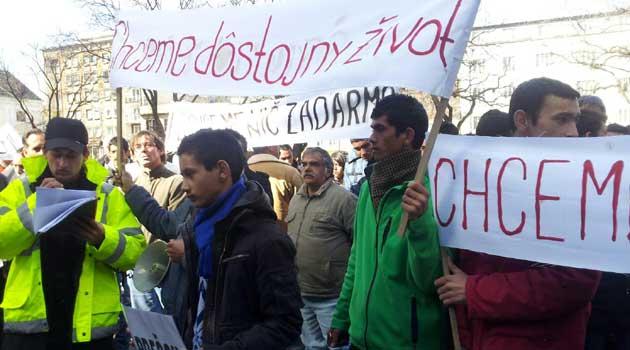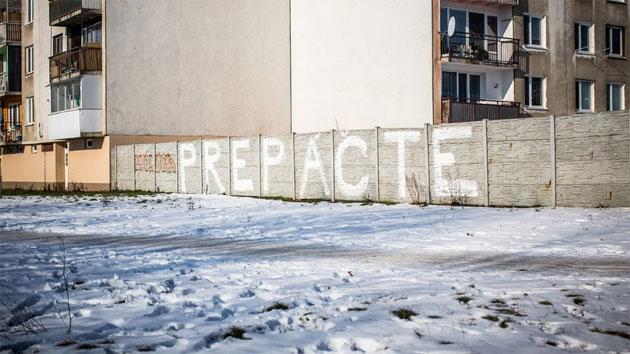Romani people in Slovakia are planning to organize a series of demonstrations this fall to draw attention to the longstanding oppressive social situation of the members of this large minority. František Tanko, head of the Romani Union Party in Slovakia, which is not in Parliament, informed the press of the plans on 11 August.
"We are organizing these protests because Romani people here are highly dissatisfied with the handling of their problems. Nothing has changed for the past 22 years," Tanko claimed.
The party chair said the demonstrations will be realized in September and October in larger cities where Romani people live as well as in Bratislava. According to study published last year, more than 400 000 Romani people live in Slovakia, which has a total population of five million.
The study’s numbers are almost quadruple those of the most recent census in 2011. Most Romani people live in one of the 800 settlements in Central or Eastern Slovakia.
Roughly one-tenth of the dwellings in those settlements do not have access to potable water and are not collected to the electric grid. According to experts, Romani people lack educations and many are jobless and dependent on state financial aid.
"We don’t want welfare. Romani people need jobs. Once they have jobs, their situations will change," Tanko said.
The party chair also claims that projects financed from EU funds are actually not helping Romani people, as the money is allegedly being spent ineffectively, for example, on various celebrations or conferences. "At the end of the day, this is no use," he said.
According to representatives of the Romani community in Slovakia, improving the position of the Romani minority has not been helped by the Slovak Government Plenipotentiary for the Roma Community Peter Pollák, who grew up in a Romani settlement himself. "We expected he would improve the situation. Time has shown that the situation is stagnating," Tanko noted.
Romani people in Slovakia have demonstrated against their bad social conditions in the past. Last year participation in such protests was not high, however.
Slovakia has faced criticism by international organizations over the position of Romani people in the past. Those groups have pointed out, for example, that Romani children are disadvantaged in their access to education, as well as the erection of walls in various places around the country that are supposed to separate Romani communities from the rest of the population.

